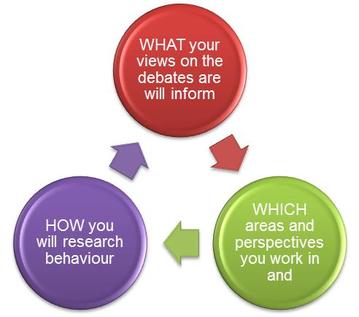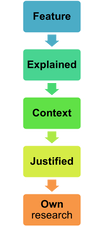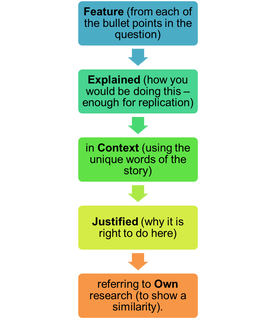
Paper 1 Revision Checklist
can be found here
can be found here

The full and complete list of past paper questions for paper 1 can be found here

Paper 1: Research Methods introduces and develops your knowledge and understanding of the process of planning, conducting, analysing and reporting psychological research across a range of experimental and non- experimental methodologies and techniques.
Section A: 20 Multiple choice questions
Section A: 20 Multiple choice questions
- Make sure you know how many questions you can do before you become tired
- This is the easiest section to ask questions on: Harvard referencing (WHO WHEN WHAT WHERE) and the sections of a psychology report (TAIMRDRA)
- You will read a novel source and be asked questions on this
- There will be a 'Design Your Own Research' question in this section (4 x FECJO).
- You will be asked to analyse and interpret novel data or a piece of hypothetical research using descriptive and/or inferential statistics.
Practice, practice, practice!
The best way to prepare for Paper 1 is to practice, practice, practice. You can do this by:
- Completing all of the past paper questions which have ever been asked.
- Take the practice tests on Dynamic Learning http://my.dynamic-learning.co.uk/
- Best Youtube videos - MissOwen1 for Research Methods
- Complete the exercises in your textbook
- Complete the exercises in the workbook Paper 1: ISBN: 1471845214 – This is the workbook on Amazon for around £6.
WHAT IS THE PAPER LIKE?
|
Section A: Multiple Choice Questions
20 Multiple choice questions
|
Section B: Research design and response

Paper 1 Section B will ask you to design your own research. The question wants you to describe HOW you would do this study in enough detail so someone else could replicate this work.
There are 4 types of question you could be asked:
There are 4 types of question you could be asked:
- Experiment (like your own experiment on Kim’s Game)
- Observations (you did an observation on X factor bad auditions and how your friends present themselves on Facebook)
- Correlations (you looked at the number of hours slept and dreams)
- Self-reports (you chose to write questionnaire either pets & stress, gender & car colour, weather & mood)
|
The question is likely to have 4 bullet points with features you have to address. For each of the bullet points / features, you need to say:
| |||||||||||||||
Section C: Data analysis and interpretation
You will be asked to analyse and interpret novel data or a piece of hypothetical research using descriptive and/or inferential statistics.Whenever the question says 'this', you need to link your point to the study - use a unique word from the story.
You will be asked to analyse and interpret novel data or a piece of hypothetical research using descriptive and/or inferential statistics.Whenever the question says 'this', you need to link your point to the study - use a unique word from the story.



